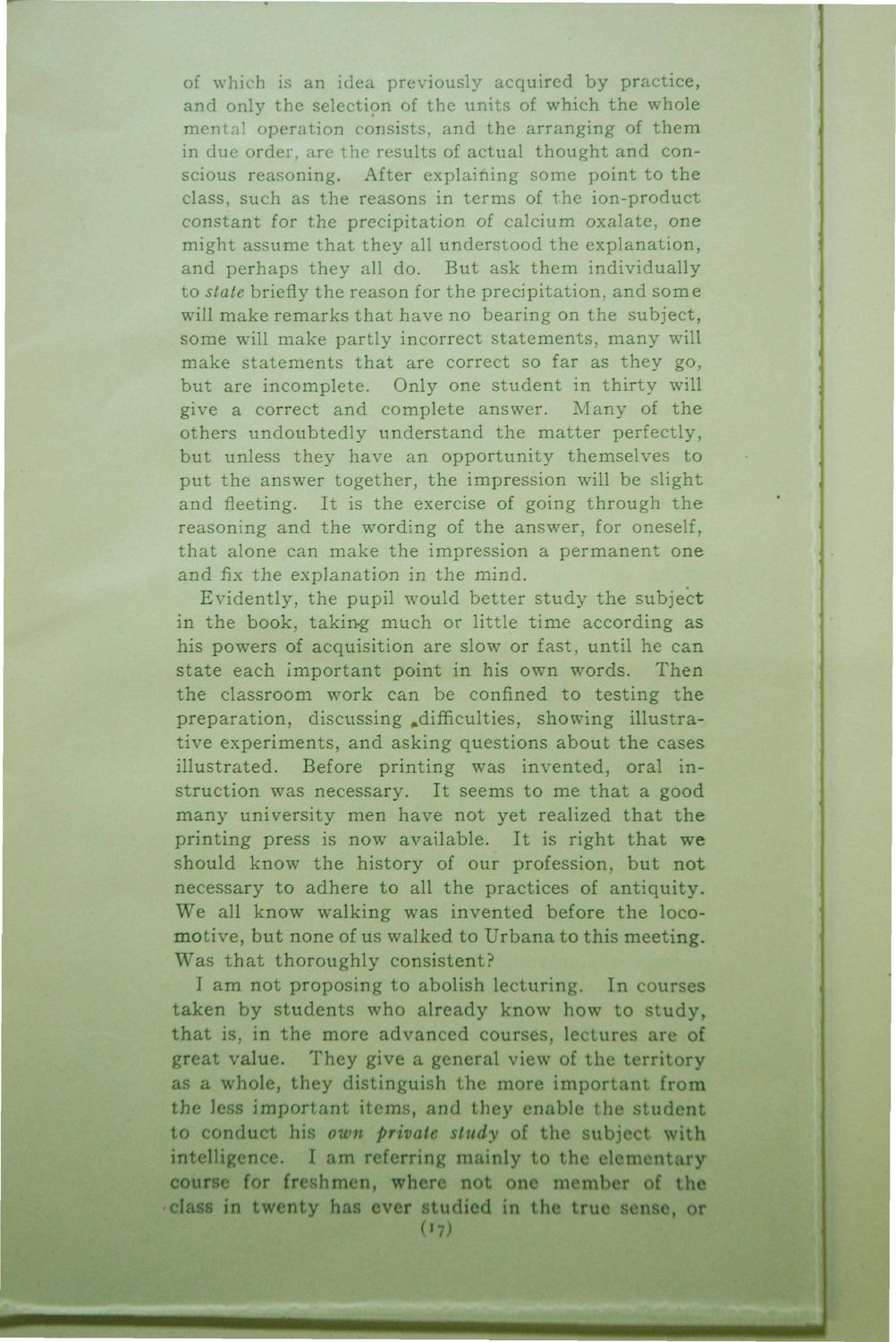| |
| |
Caption: Dedication - New Chemistry Building
This is a reduced-resolution page image for fast online browsing.

EXTRACTED TEXT FROM PAGE:
of which is an idea previously acquired by practice, and only the selection of the units of which the whole mental operation consists, and the arranging of them in due order, are the results of actual thought and conscious reasoning. After explaining some point to the class, such as the reasons in terms of the ion-product constant for the precipitation of calcium oxalate, one might assume t h a t they all understood the explanation, and perhaps they all do. But ask them individually to state briefly the reason for the precipitation, and some will make remarks t h a t have no bearing on the subject, some will make partly incorrect statements, many will make statements t h a t are correct so far as they go, but are incomplete. Only one student in thirty will give a correct and complete answer. Many of t h e others undoubtedly understand the matter perfectly, but unless they have an opportunity themselves to put the answer together, the impression will be slight and fleeting. It is the exercise of going through t h e reasoning and the wording of the answer, for oneself, t h a t alone can make the impression a permanent one and fix the explanation in t h e mind. Evidently, the pupil would better study the subject in the book, taking much or little time according as his powers of acquisition are slow or fast, until he can state each important point in his own words. Then the classroom work can be confined t o testing t h e preparation, discussing ^difficulties, showing illustrative experiments, and asking questions about t h e cases illustrated. Before printing was invented, oral instruction was necessary. I t seems t o me t h a t a good many university men have not yet realized t h a t the printing press is now available. I t is right t h a t we should know the history of our profession, b u t not necessary t o adhere t o all the practices of antiquity. We all know walking was invented before t h e locomotive, b u t none of us walked t o Urbana t o this meeting. Was t h a t thoroughly consistent? I a m not proposing t o abolish lecturing. I n courses taken by students who already know how t o s t u d y , t h a t is, in t h e more advanced courses, lectures are of great value. They give a general view of the territory as a whole, they distinguish t h e more i m p o r t a n t from t h e less i m p o r t a n t items, and they enable the student to conduct his own private study of the subject with intelligence. I am referring mainly to the elementary course for freshmen, where not one member of the class in twenty has ever studied in the true sense, or (17)
| |